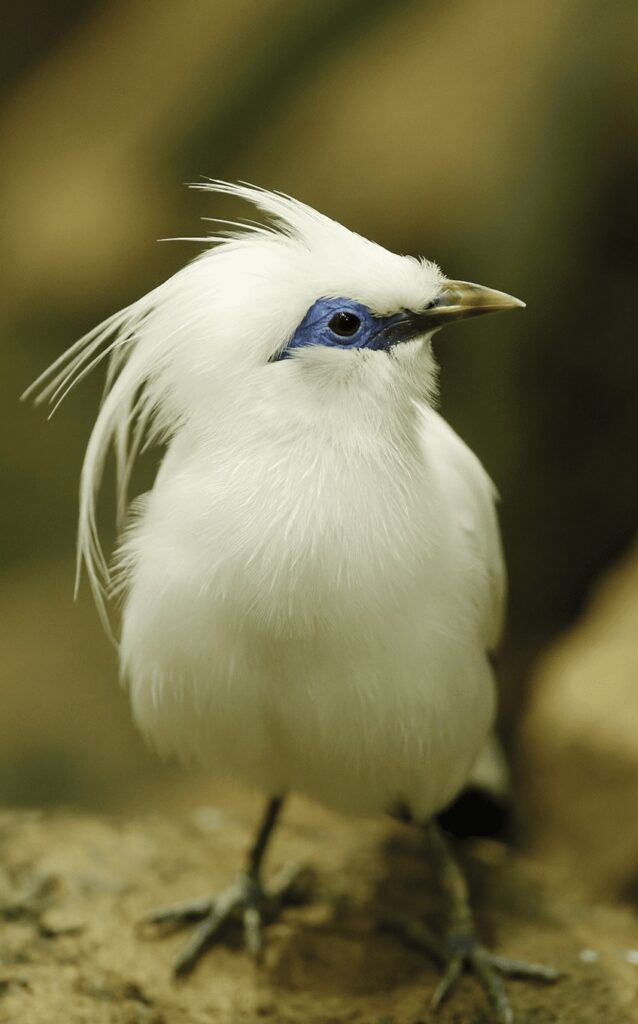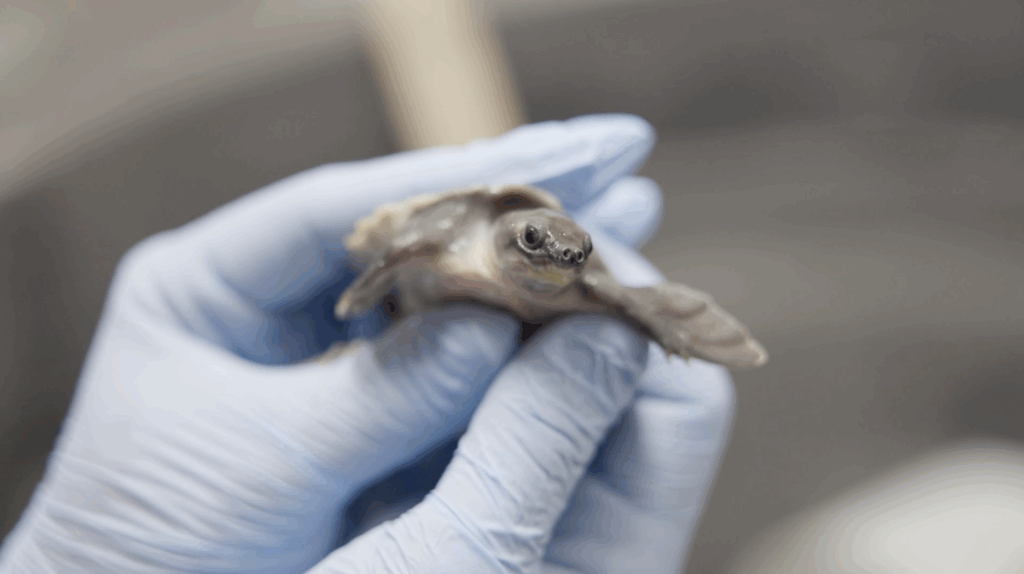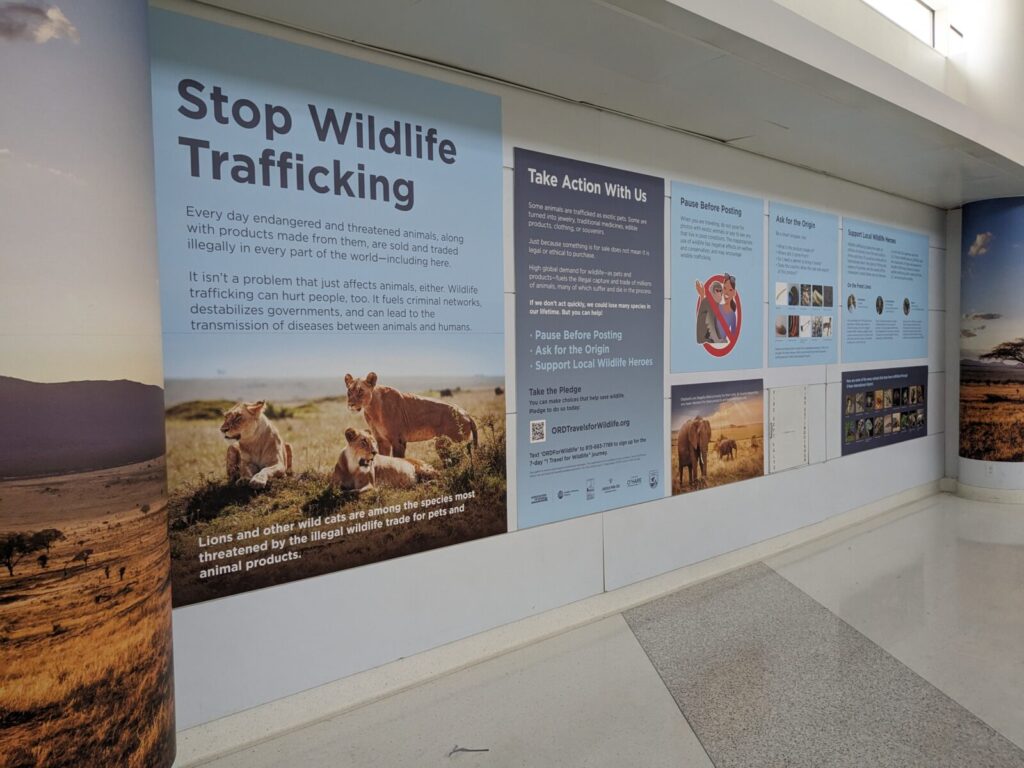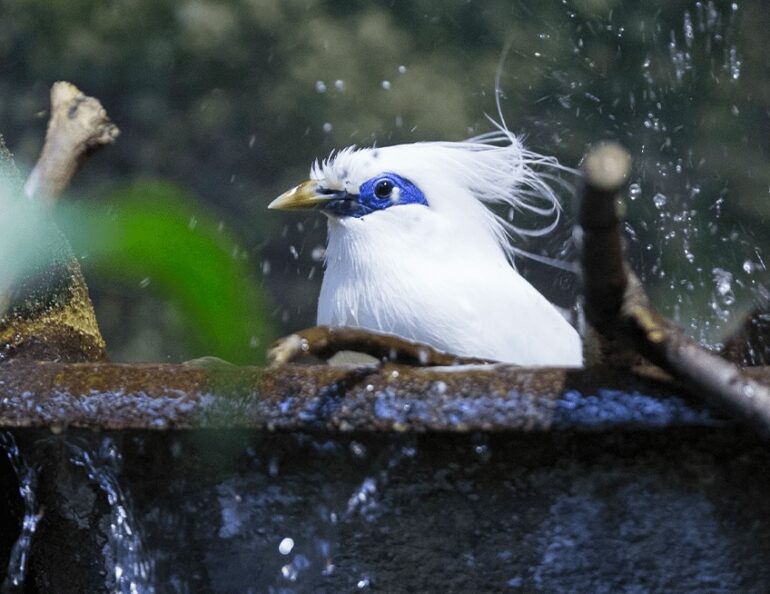I remember one of the first birds I ever worked with. His name was Saki, and he was a Bali myna. He would greet me every morning by saying “Hello, Saki” and “Hi.” I was so intrigued that I set out to learn more about the species. What I learned was disheartening.
At that time, there were only approximately six Bali mynas left in the wild. The birds saw a drastic population decline primarily because of poaching for the pet trade. Learning this started my journey in understanding wildlife poaching and advocating for wildlife affected by illegal trade.
Wild Animals Are Not Pets
As someone who has been enamored with wildlife my whole life and found myself fascinated with Saki the songbird, I can empathize with the intrigue of wildlife as pets. However, the desire for wildlife products is fueling the illegal wildlife trade and decimating wildlife populations, leaving some species on the brink of extinction.

Today, we know more than ever the impacts of consumerism on wildlife populations and ecosystems. The illegal wildlife trade is one of the largest transnational criminal activities, at around $20 billion per year, right behind drugs, weapons, and human trafficking. The United States is a destination, transit route, and source of illegal wildlife, making it one of the largest consumers of illegal wildlife and wildlife products in the world. Wildlife trafficking isn’t an “over there” problem; it is present and persistent right here at home.
At the last Convention of the International Trade in Endangered Species of Wild Fauna and Flora (CITES) meeting, experts reported that more than 1 million live musk turtles were exported from the US in six years. That’s nearly 700 turtles collected each day for the commercial trade, and it is one of only 57 turtle species found in North America. Removing that extraordinary number of individual turtles from their native habitat wreaks havoc on food chains, leading to unstable habitats and, ultimately, unhealthy lands for humans and wildlife alike.
Unfortunately, this is just one example of thousands. Lincoln Park Zoo has cared for more than 300 individual animals illegally trafficked and confiscated at O’Hare International Airport. Tragically, many animal lives are cut far too short because they are inappropriately handled and transported.

Recently, spider monkeys have been in the news. Just last month, a 6-month-old spider monkey was found wandering in a neighborhood in Texas and sent to a sanctuary. Another infant spider monkey that was found during an investigation was transferred to Oakland Zoo. Then there is baby J, who was tossed out of a vehicle but found care at Dallas Zoo and Brevard Zoo. Even for those lucky enough to survive the trauma and be appropriately rehomed, they have a long road ahead. Many cannot be released because they’ve become reliant on humans or have long-lasting impacts from inappropriate rearing.
Accidental Participants in Wildlife Trafficking
Most people are not knowingly capturing animals and shipping them for profit. And most people know not to purchase exotic animals for pets. However, the wildlife trade extends far beyond live animals and has many accidental participants.
Many people don’t realize they’re supporting illegal animal trade through the purchase of luxury goods. Wildlife products such as pelts, furs, purses, jewelry, home décor, and many other luxury items may come from illegal sources.
Most commonly, some luxury handbags are made by CITES-protected species, and unfortunately, unknowing buyers could be contributing to illegal wildlife trade by purchasing these designer purses.
What People Can Do to Reduce Illegal Wildlife Trade
Wildlife needs our help, and seemingly small decisions people make can combat wildlife trafficking on a grand scale.

When shopping, be an inquisitive and smart shopper. Don’t buy products made from exotic wild animals or animal parts. If you’re unsure of where something comes from, ask for the origin. Doing so helps reduce the chance of unknowingly supporting practices that harm wildlife.
Whether in the U.S., abroad, or online, be wary of exotic animals as pets or performers. Avoid posing for photos with exotic pets or paying to see any that live in poor conditions—these animals may have been obtained through illegal means.
When scrolling social media, our mantra is, “pause before posting.” If you see a video of an exotic animal presented as a pet, featured as an entertainer, or given too many human characteristics, sharing it could encourage trafficking. When animals go viral, there’s a short-term burst of interest in them as pets, and trafficking increases.
Your actions can help raise awareness of wildlife trafficking and help put an end to its unnecessary existence.
How to Help
A Make It Better Foundation grant content partner, the Lincoln Park Zoo is a partner with the Association of Zoos and Aquariums (AZA) Wildlife Trafficking Alliance. Together, these organizations are working to educate the general public about the illegal wildlife trade and reduce illegal trade activities.

This post was submitted as part of our “You Said It” program.” Your voice, ideas, and engagement are important to help us accomplish our mission. We encourage you to share your ideas and efforts to make the world a better place by submitting a “You Said It.”

S. Sunny Nelson is the Vice President of Conservation and Science at Lincoln Park Zoo. A passionate conservationist with nearly 30 years of animal care and conservation expertise, she is also a member of the International Union for the Conservation of Nature (IUCN) Species Survival Commission (SSC) Asian Songbird Trade specialist group and serves on several steering committees and scientific advisory groups within the Association of Zoos and Aquariums community.
- ‘One Image Can Change the World’: How Ami Vitale Uses Her Camera to Confront Extinction and the Climate Crisis
- National Geographic Photo Ark: Joel Sartore’s Urgent Mission to Document and Protect Earth’s Vanishing Species
- Pasadena Humane Rescued Hundreds of Wildfire-Displaced Animals — Here’s How Pet Owners Can Prepare for the Next Emergency

